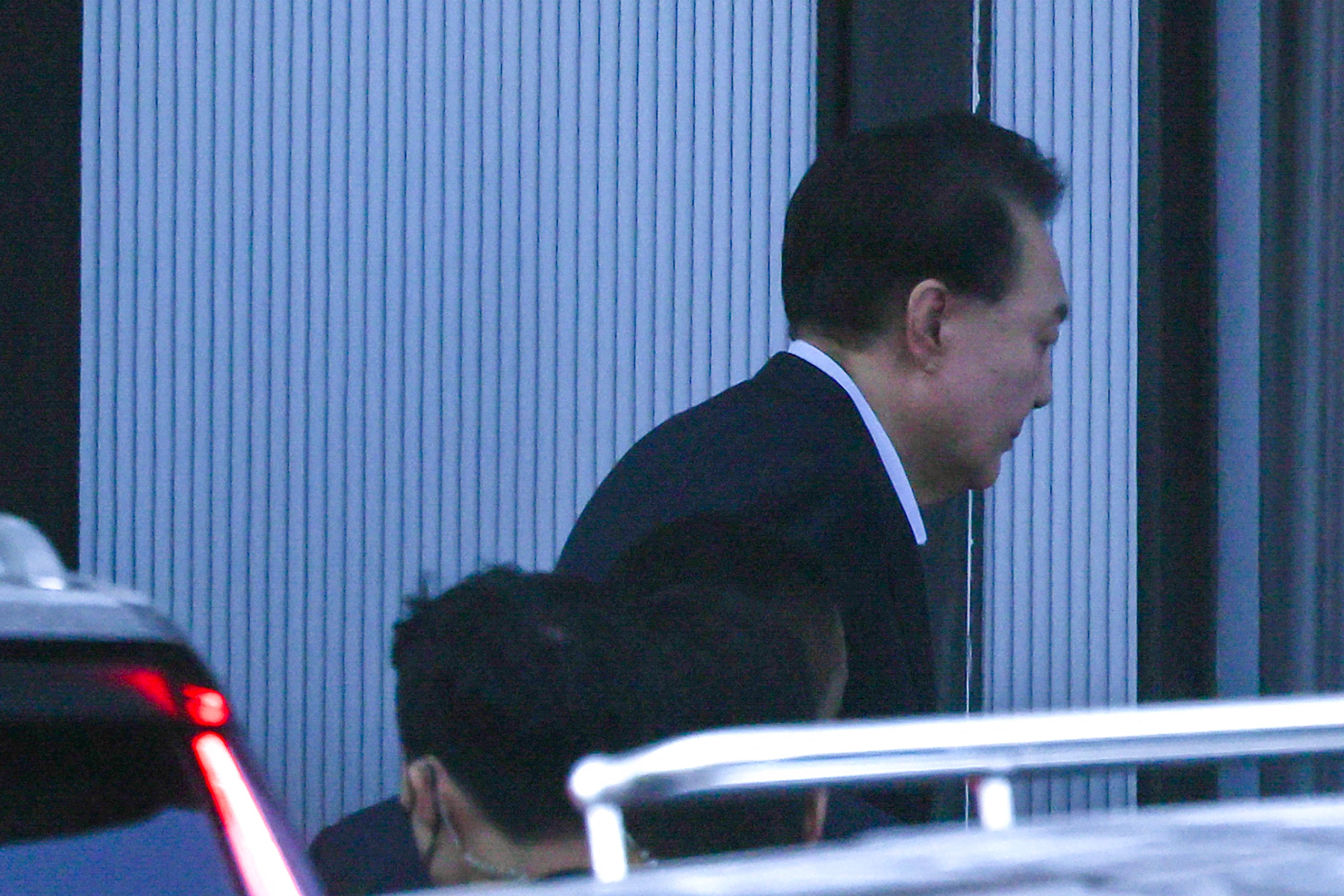South Korean prosecutors indicted impeached president Yoon Suk Yeol on Sunday on charges of leading an insurrection, with his short-lived martial law declaration on 3 December.
This follows a recommendation from anti-corruption investigators last week that Mr Yoon be formally charged. It makes Mr Yoon the first sitting president in Korea’s history to be indicted under detention.
Mr Yoon also became the first sitting president of South Korea to be arrested after being charged with insurrection, a month after he stunned the world by imposing martial law, swiftly revoked by a parliamentary vote. He was then impeached by the national assembly.
Investigators launched a pre-dawn operation on 15 December to arrest Mr Yoon – their second attempt – triggering a near three-hour standoff between the president’s supporters and more than 3,000 police officers. Later the same day, hundreds of law enforcement officers entered the presidential residence in Seoul, and arrested Mr Yoon.
On Friday, a statement from his lawyer said he was “a little uncomfortable” but “doing well”. He is detained at the Seoul Detention Center in Uiwang, south of the capital.

Insurrection is one of the few criminal charges from which a South Korean president does not have immunity. It is punishable by life imprisonment or death, although South Korea has not executed anyone in decades.
“The prosecution has decided to indict Yoon Suk Yeol, who is facing charges of being a ringleader of insurrection,” main opposition Democratic Party spokesman Han Min Soo told a press conference. “The punishment of the ringleader of insurrection now begins finally.”
Defending his actions, Mr Yoon said at a court hearing that his martial law declaration was only meant to inform the public of the danger of an opposition-controlled national assembly. He argued that the martial law imposition ended early because he quickly withdrew troops after the assembly voted down his decree.
Mr Yoon’s indictment comes a day before his detention period was set to end. The Corruption Investigation Office for High-ranking Officials (CIO), which was investigating Mr Yoon, transferred the case to the prosecution on Thursday, since legally the agency cannot indict a president.
The prosecution team on the case said they reviewed the evidence and determined that indicting Mr Yoon was the appropriate choice.
Prosecutors were unable to investigate after a Seoul court rejected two requests to extend the president’s detention period.
If a suspect is not indicted within the detention period, they must be released, according to South Korean law.
As Mr Yoon awaits a Constitutional Court trial that will decide whether to permanently suspend his powers or return him to office, the country grapples with extreme political turmoil.







